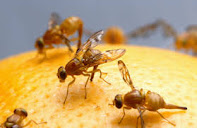Some recent happenings:
Dutch soccer player Georginio Wijnaldum, who recently signed with PSG, said of his time at ex-club Liverpool, “There was a moment when I didn't feel loved and appreciated...The fans in the stadium always supported me...On social media, if we lost, I was the one who got the blame.”
Simone Biles, the U.S. gymnast who pulled out of the team competition, said of her pre-Olympic stress, “There were a couple of days when everybody tweets you and you feel the weight of the world.”
Singer Billie Eilish lamented the difficulty of doing good in the world when people online “are just going to keep saying that you're doing wrong.”
All these folks are high-profile individuals whose mental see-saws have been tipped off their fulcrums by the bullies (or adoring masses) of social media. And while I can empathize with their pain, I can’t help but wonder if we should make a key distinction once and for all, the distinction between the Twittersphere and the real world of flesh and blood.
The Wijnaldum case is especially intriguing. He noted himself the difference between fans he interacted with in person and those hurling insults through the void, saying "My feeling was that the fans in the stadium and the fans on social media were two different kinds.” Where he seems to have gone wrong is in giving each of these subsets equal weight. Who counts as a “Liverpool fan?” The dad and his son, wearing jerseys and waiting for an autograph from the little boy’s favorite player outside the stadium? Certainly. How about an anonymous Twitter user posting nasty things after the game, who could be someone genuinely displeased with Wijnaldum’s performance... or a casual observer who enjoys causing trouble… or some random person a half a world away who gets a kick out of winding up whoever they can, wherever they can, taking advantage of the anonymity and normalized vulgarity that Twitter provides? Does this last entity deserve its place in Wijnadlum’s mental category titled “Liverpool fans?” Does this entity even belong in the category of “people?”
A person interacts with the world, interchanging words and gestures with others, dealing constantly and inevitably with the consequences of their communications. A Twitter handle isn’t so much an extension of a person as a non-personal entity a person takes up when they’re looking to take a break from personhood. Why should these entities be given any weight by real people operating in society?
Of course, dragging social media entities below the threshold of personhood isn’t always so easy. This is most keenly felt in the case of physical threats and racial abuse. When athletes are subjected to such nastiness, as they increasingly are, it must be immensely painful, producing a fear and disgust I can scarcely comprehend. And no matter how much the athlete intellectualizes the concern away, there is still that unavoidable fact: Real human fingers typed those worlds.
But even these extreme cases are best dealt with by insisting on the non-personhood of the Twitter entity and the non-reality of the Twitter world. It’s by no means a perfect formulation. Twitter does, of course, exist. But it exists not so much within our social world as alongside it.










